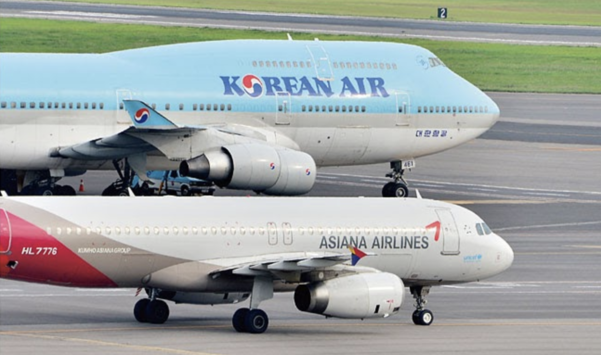Input 2021.02.28 07:53
According to Parliamentary Park Sang-hyuk of the Democratic Party on the 28th, an analysis of five routes in the Americas that are expected to generate monopoly due to the consolidation of the two major airlines revealed that the lowest price of Korean Air flight tickets was 31-42% of the upper fare limit set by the Ministry of Land, Infrastructure and Transport.

The three routes, except Incheon, Seattle, and Atlanta, operated by Delta Airlines in the United States, have a 100% share of both airlines. Since Delta Air Lines has signed a joint venture (JV) alliance with Korean Air, the rest of the routes are actually analyzed as monopoly.
Airlines generally set the list price close to the fare ceiling and sell tickets at various discount prices.
In the industry, it is pointed out that the fare ceiling is not a factor that makes it difficult for airlines to raise prices because the fare ceiling is three times higher than the actual ticket price. There is room for Korean Air to raise fares by adjusting the discount rate and the number of seats for each section.
Already in December of last year, Korean Air introduced a differential fare system for economy class that allows you to preempt emergency exit seats at an additional fee. Some pointed out that the fare was actually increased through the differential system.
In addition, Korea Development Bank and Korean Air Hanjin Knife (180640)The investment agreement signed for the acquisition of Asiana Airlines contained a restriction on the rate increase, but it was reported that there was no such’safety device’ after the KDB sold its stake. KDB aims to sell Hanjin Kal’s stake two years after the launch of the integrated airline.
Both Korean Air and the Ministry of Land, Infrastructure and Transport are drawing lines on the possibility of an increase in fares. Hanjin Group Chairman Cho Won-tae said in November last year, “There is absolutely no customer convenience (deterioration) or price increase.” Minister of Land, Infrastructure and Transport Byun Chang-heum said in response to the Ministerial Hearing, “We must manage to ensure that fares are set at a reasonable level through administrative guidance, etc.”
The Ministry of Land, Infrastructure and Transport plans to establish a system that can monitor real-time market fare trends by route, time and airline, and an integrated international flight management system to prepare for Korean Air’s surprise fare increase.
Rep. Park said, “On monopolistic routes, Korean Air actually has the right to determine pricing,” he said. “Since the fare cap alone cannot control it, it is necessary to investigate and analyze market prices and prepare practical measures at the level of the Ministry of Land, Infrastructure and Transport.
